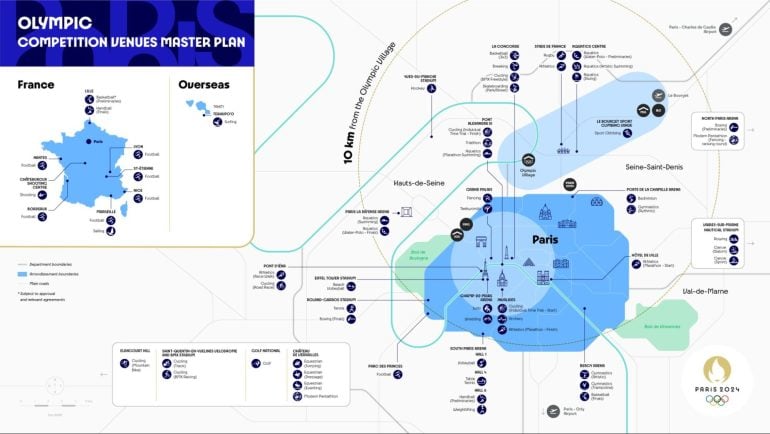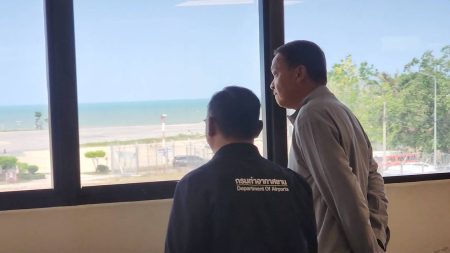By Sally French | NerdWallet
As Paris prepares to host the 2024 Olympic Games, the cost of traveling in France is experiencing significant inflation.
Even public transportation prices are going up, with prices for individual public transit tickets temporarily increasing between July 20 and Sept. 8 to nearly double their current prices. French government officials have announced that prices will temporarily be 4 euros (about $4), up from the current starting price of 2.15 euros.
The positive news is there are still money-saving strategies if you’re going to Paris this summer for the Olympic Games.
1. Look for inexpensive seats
Not all Olympic sports have the same admission costs.
Popular sports like gymnastics and swimming tend to sell out quickly. The only official way to get tickets for an event like women’s artistic gymnastics is through expensive hospitality packages. At the time of a NerdWallet analysis in mid-February, such packages start at 495 euros (about $540) — and that’s just for qualification rounds. For women’s gymnastics all-around finals, the cheapest available packages cost 3,750 euros (more than $4,000).
However, not all sports have high price tags. Certain admission tickets, including some golf, rugby and other events, start at 24 euros (about $26), according to a NerdWallet analysis of more than 100 ticket prices.
If you plan to visit Paris after the Games end and want to see some events, tickets for the 2024 Paris Paralympic Games (Aug. 28 to Sept. 8) are generally even cheaper. Prices start at 15 euros or about $16.
2. Watch the Games for free

The Olympic Games Opening Ceremony will take place for the first time outside of a stadium. Instead, it’ll occur along the Seine. (Concept art courtesy of Paris 2024)
There are free ways to watch some Olympic festivities. That includes the opening ceremony, which — for the first time in Summer Games history — won’t take place inside an enclosed stadium.
Instead, it’ll play out on the Seine, where tickets are required for certain viewing areas but not all. Anyone can watch for free from the Seine’s upper quays, and organizers expect hundreds of thousands of spectators.
In addition, some sports are free to watch. For example, you’ll need tickets for a reserved viewing spot at the finish line of the Olympic marathon, but it’s free to stand along most of the route. Road cycling and the triathlon also feature free viewing locations.
Then, there are the “celebration zones.” These are a set of about 30 free-to-visit venues around Paris where giant screens will stream the events.
3. Stay outside the city center

Many of the venues aren’t located in Paris. (Map courtesy of Paris 2024)
Lodging prices have risen throughout Paris and the surrounding area. Vacation rental rates are 40% higher during the Games versus the two weeks before, according to AirDNA, a short-term rental analytics company.
But if you don’t mind being on the city’s outskirts, you’ll save by staying in the suburbs. AirDNA analyzed costs for available vacation rentals and found that average rates for rentals in Paris for the two weeks of the Games are $619 a night. Meanwhile, available rates for rentals in the suburbs are just $302 a night, according to data analyzed on Feb. 15.
Sure, you won’t be at the focal point of the activity (or you’ll spend time commuting). Then again, staying outside the city might be more practical for some fans. After all, of the 35 Olympic venues, there are about a dozen in the Paris region, but not in the heart of the city. Also, a few venues aren’t situated near Paris. For instance, sailing will take place on the Mediterranean in Marseilles.
4. Have a picnic like a Parisian
While giving extra money at French restaurants is largely unnecessary, dining out in Paris can still be expensive. Instead, get fruit, cheese and a baguette at one of the city’s markets. It’s about a 20-minute walk from the famous Aligre Market to Bercy Arena, which will host some of the biggest events including gymnastics. Bercy Arena is located within Parc de Bercy, which can be an ideal place to enjoy your haul.
Be sure to check market opening and closing times before you go, especially at open-air markets, where hours might be limited.
5. Travel by bike
Public transit prices are increasing, and traveling by car likely means spending time in traffic. Biking might be a better way to get around, and one option is Vélib’ Métropole, the city’s bike-share service. It has about 19,000 bicycles (including several electric options) and almost 1,500 docking points across the greater Paris area allowing for one-way rides.
Individual rides up to 45 minutes cost 3 euros. You might think about the 24-hour pass (5 euros) or the three-day pass (20 euros).
6. Use the appropriate travel credit card
Whether you’re headed to Paris for the Olympics or not, it’s always a best practice to bring the right credit card on your international trip. Most importantly, pay with one that doesn’t charge foreign transaction fees. Otherwise, these fees can add up to 3% of purchases simply because you used the card outside the U.S.
If you’re open to paying an annual fee for a travel card, you might save more money in the long run. That’s because the best travel cards offer additional benefits like travel insurance, which can save you from buying a separate travel insurance policy. Many cards also offer to cover application fees for Global Entry, NEXUS or TSA PreCheck.
From there, consider cards that offer bonus points on travel categories or additional travel perks like automatic elite status in your preferred hotel or airline brand.
More From NerdWallet
The article 6 Ways to Save Money in Paris During the Olympics originally appeared on NerdWallet.









